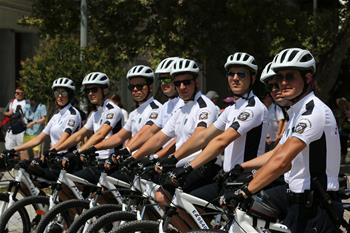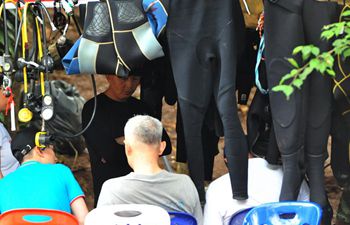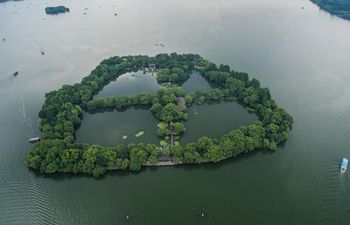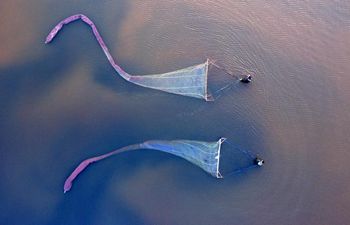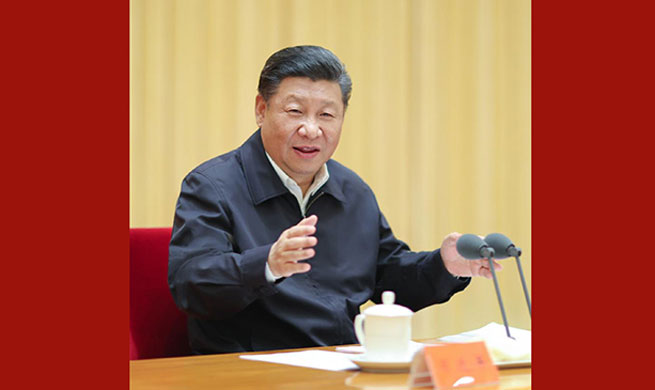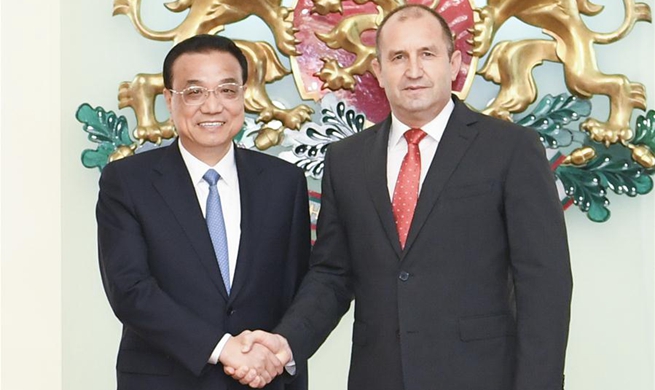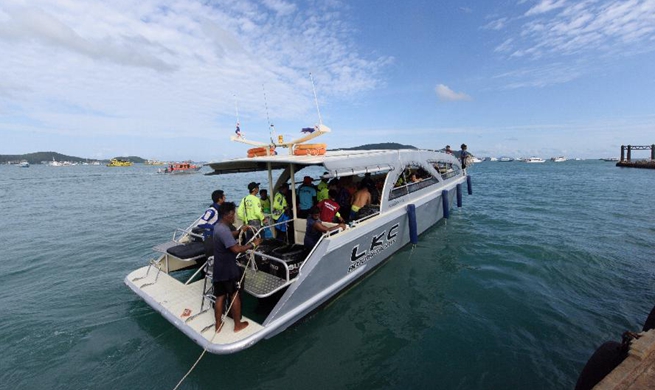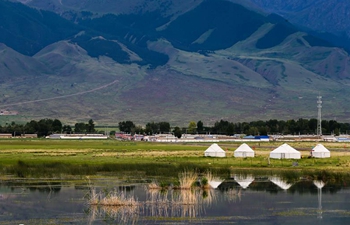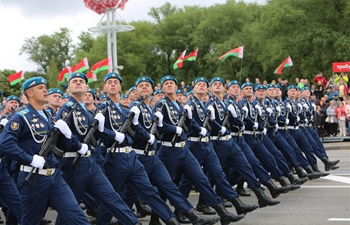ISTANBUL, July 6 (Xinhua) -- As the European Union (EU) keeps sending negative messages on Turkey's full membership, analysts said Ankara's ambition of becoming a full member of the 28-nation bloc looks now a far-fetched idea.
Ankara-EU ties will be shaped regardless of the full membership from now on, Sinan Ulgen, head of an Istanbul-based think tank, told Xinhua.
Amid already freezing ties with the EU, the most recent blow came from Germany, one of EU's leading countries.
The German government affirmed on Wednesday that it did not see any progress in Ankara's full membership bid as possible.
In its response published on German parliament's website, the government said no new chapters are to be opened in Ankara's long-stalled accession talks with the EU.
"Despite publicly declaring full membership as a goal, Turkey does not display a strong will to become a full member," said Ulgen, chairman of the Center for Economics and Foreign Policy Studies.
"The EU's attitude is no different," he said.
Turkey's accession talks with the EU, which began in 2005, have long been stalled.
However, Turkish-EU ties have particularly soured in the past couple of years when the EU has increasingly criticized the Turkish government for drifting away from democracy and European values.
"It's now clear that Turkey will fail in its goal of becoming a full EU member by 2023," Faruk Sen, an analyst on Turkish-EU relations, told Xinhua. The year 2023 marks the centenary of the foundation of modern Turkey.
Both analysts believed Turkey's full membership in the EU is not possible in the foreseeable future, something, which the European Parliament's Turkey Rapporteur Kati Piri also revealed.
In remarks to the Deutsche Welle on Wednesday, Piri said restarting accession talks with Ankara did not look possible for at least the next five years under the current circumstances.
Accusing Ankara of turning a deaf ear to EU's criticism for deteriorating democratic standards, she said, "from our perspective, the redline has been crossed."
Piri also said they would, in this year's progress report, call for Turkey's accession talks to be formally suspended.
"Turkey will simply remain a strategic partner for the EU like Ukraine and Russia," said Sen.
Germany, like many EU countries, also opposes the Turkish demand for the upgrade on the Customs Union agreement between Ankara and Brussels.
Due to the Customs Union agreement, in effect since 1996, Ankara is being negatively affected by the free trade agreements the EU concludes with third countries.
EU's free trade agreements, on which Ankara has no say, pave the way for a third country to export to Turkey with zero customs duty. However, Turkey cannot enjoy the same privilege as it is not an EU member or a party to the deal.
Turkey's ties with the EU have now de facto turned into a sort of privileged partnership, said Sen, who is the president of the Istanbul-based Turkish European Foundation for Education and Scientific Studies.
The EU has been reluctant to admit Turkey as a full member from the beginning, and has suggested since early 2000s that Ankara accept a status of privileged partnership.
Ankara has flatly rejected the EU proposal, saying it would not settle for anything less than full membership.
"As things stand, even the Customs Union agreement can't be negotiated. However, the upgrading of the agreement was inherent in the privileged partnership status," noted Ulgen.
Ties between Ankara and Brussels have particularly deteriorated since Turkey's failed coup in July 2016, following which the government imposed a state of emergency, which is to be lifted only in the coming days.
Last year's referendum in which Turkish people voted in favor of a switch from the parliamental system to a rather strong executive presidential one also raised concerns in the EU about the future of democracy in Turkey.
Stopping the illegal immigration of Syrians toward Europe via Turkey appears to be the only area in which Ankara and Brussels successfully cooperate at the moment.
Ankara finalized a deal with the bloc in 2016 to stop the migration in return for visa-free travel for its citizens, revival of its long-stalled accession talks and financial aid for refugees in Turkey.
However, recent remarks by Turkey's Foreign Minister Mevlut Cavusoglu have raised questions about how solid the refugee deal is.
Ankara would not honor the refugee deal unless the EU grants visa-free travel for Turkish citizens, he said last Friday.
"For the EU, Turkey has now become a center for keeping refugees under control," remarked Sen.
In a move that symbolically reveals decreasing Turkish interest in becoming an EU member, Ankara is expected to close down its Ministry of EU Affairs next week when President Recep Tayyip Erdogan will announce the new cabinet following the elections.
As a Muslim country, Turkey feels it has been kept on the EU's waiting list for too long, while former Soviet-bloc countries, which applied for EU membership only in the 1990s, were admitted into the bloc years ago.




